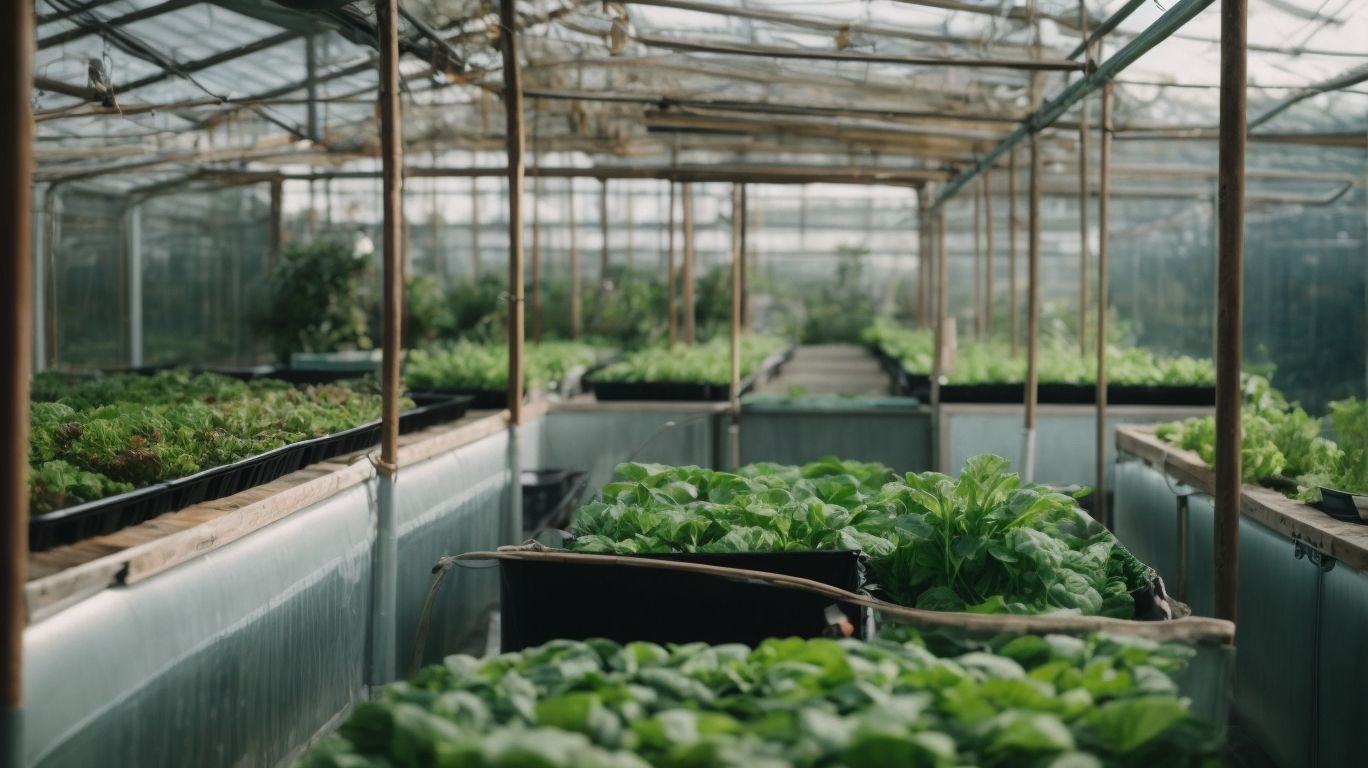Florida is known for its lush landscapes and diverse plant life, but what makes the soil in this state so unique? Understanding the composition and nutritional needs of Florida soil is essential for successful gardening. In this comprehensive guide, we will explore the different types of Florida soil, its distinctive characteristics, and the best practices for maintaining healthy soil.
From testing and improving soil quality to identifying the best plants for Florida soil, this article will provide valuable insights for anyone looking to enhance their gardening efforts in the Sunshine State. So, whether you’re a seasoned gardener or just starting out, read on to discover how to optimize your Florida soil for a thriving garden.
Key Takeaways:
What is Florida Soil?
Florida soil refers to the naturally occurring and cultivated soil in the state of Florida, characterized by its diverse composition, including organic matter and essential nutrients for plant growth and sustenance. The University of Florida’s Institute of Food and Agricultural Sciences (IFAS) extensively studies Florida soil to understand its unique properties and the role of microorganisms in maintaining its health.
Florida soil encompasses a range of types, each with its own combination of sand, silt, clay, and organic materials. The sandy soils prevalent in Florida generally have lower water and nutrient retention capacity, while the more clay-rich soils hold water more effectively.
IFAS research has shown the importance of adding organic matter to Florida soils to increase their fertility and improve their structure, allowing for better root development and enhanced nutrient availability for plants.
What Makes Florida Soil Unique?
Florida soil stands out due to its unique characteristics, influenced by factors such as the Myakka soil series, a prominent soil type in the state, and the ongoing research conducted by the University of Florida’s IFAS to understand the role of microorganisms in sustaining soil health and fertility.
The Myakka soil series is distinctive for its high content of organic matter, making it a valuable resource for agriculture and horticulture. The University of Florida’s IFAS has been at the forefront of studying the interactions between microorganisms and soil, with a particular focus on the impact of beneficial bacteria and fungi on enhancing crop productivity and soil sustainability. Their research has revealed the intricate web of relationships between microorganisms, plant roots, and soil nutrients, shedding light on innovative approaches to improve soil fertility and ecosystem resilience.
What Are the Different Types of Florida Soil?
The diverse types of Florida soil encompass the Myakka series, known for its sand content and influence on soil pH, as well as permeable pavers designed to enhance soil drainage and water management. The University of Florida’s IFAS offers soil testing services to identify specific soil types and their respective characteristics.
The Myakka series is characterized by its high sand content, making it well-draining but often nutrient-poor. The sandy nature of this soil influences its pH, typically resulting in acidic conditions. The University of Florida’s IFAS provides comprehensive soil testing services, which help determine the pH levels and nutrient composition of the soil.
Permeable pavers are an effective solution for managing water runoff and improving soil drainage. These pavers allow water to percolate through, reducing the risk of erosion and waterlogging. This application is particularly beneficial in areas with sandy soils like the Myakka series, enhancing water management practices.
What Are the Nutritional Needs of Florida Soil?
The nutritional needs of Florida soil revolve around the essential requirements for plant growth, emphasizing the availability of nutrients, appropriate pH levels, adequate water supply, and sufficient organic matter to support the diverse range of plants cultivated by gardeners and agricultural professionals.
Optimal soil fertility in Florida is crucial for sustaining healthy plant growth. Florida soil requires a delicate balance of nutrients, including nitrogen, phosphorus, and potassium, to support plant metabolism and development. It also necessitates ideal pH levels, typically ranging from 6.0 to 6.5, to facilitate nutrient accessibility. Adequate water supply is essential, especially in the dry season, to maintain proper moisture levels for plant uptake.
The incorporation of organic matter improves soil structure, enhances water retention, and fosters a favorable environment for beneficial soil microorganisms, promoting overall plant health.
What Are the Best Fertilizers for Florida Soil?
Selecting the best fertilizers for Florida soil involves considering various options, including nutrient-rich compost produced from natural sources such as cow and horse manure, as well as targeted fertilizers recommended by the University of Florida’s IFAS to address specific nutrient deficiencies and enhance soil fertility.
Organic compost derived from cow and horse manure serves as an excellent choice for enriching Florida soil due to its natural nutrient composition and soil conditioning properties. Compost not only supplies essential nutrients but also improves soil structure, water retention, and overall microbial activity, creating a favorable environment for healthy plant growth.
University of Florida’s IFAS provides valuable recommendations for addressing specific nutrient deficiencies in Florida soil. By conducting soil tests, IFAS experts identify the exact nutrient requirements and guide towards the application of fertilizers like calcium nitrate, potassium sulfate, or magnesium sulfate to rectify deficiencies and foster optimal plant nutrition.
What Are the Best Soil Amendments for Florida Soil?
Enhancing Florida soil through strategic amendments involves considering options such as limestone and sulfur to address pH imbalances and promote optimal nutrient availability, with specific recommendations and guidelines provided by the University of Florida’s IFAS to ensure effective soil enhancement.
In terms of amending Florida soil, the use of limestone and sulfur is crucial due to the state’s naturally acidic soil conditions, particularly in regions with high rainfall and organic matter decomposition. Limestone application helps raise the soil’s pH levels, counteracting acidity and creating a more favorable environment for plant roots. This adjustment can also enhance the availability of essential nutrients like phosphorus and magnesium.
On the other hand, incorporating sulfur is effective for lowering soil pH in alkaline soils, which is common in some parts of Florida. By addressing pH imbalances, sulfur facilitates the release and availability of key nutrients, including nitrogen and potassium, essential for robust plant growth and development.
The University of Florida’s IFAS provides comprehensive guidelines for utilizing these soil amendments, offering specific dosage recommendations and application methods tailored to different regions, soil types, and plant varieties. Following these recommendations ensures that soil enhancement efforts are targeted and effective, supporting healthy plant growth and sustainable gardening practices in Florida.
How to Test and Improve Florida Soil?
Testing and improving Florida soil involves comprehensive soil analysis to assess nutrient levels, moisture content, and the presence of beneficial microorganisms, with expert guidance and extension services offered by the University of Florida’s IFAS Extension to facilitate effective soil management and enhancement.
The process of soil analysis begins with collecting soil samples from various locations, which are then sent to a laboratory for testing. The analysis typically includes evaluating the soil’s pH levels, organic matter content, and the presence of essential elements such as nitrogen, phosphorus, and potassium. Based on the results, experts from the IFAS Extension provide recommendations for fertilizer applications, soil amendments, and cultivation techniques to optimize soil health and productivity.
How to Test Soil pH in Florida?
Testing soil pH in Florida involves utilizing specialized methods and equipment to accurately measure the pH levels, enabling gardeners and agricultural professionals to make informed decisions regarding nutrient adjustments and soil amendments, with support and resources available through the University of Florida’s IFAS Extension.
One of the key methods for testing soil pH in Florida is through the use of a pH meter, which provides an efficient and precise measurement of the soil’s acidity or alkalinity. Soil test kits can also be utilized to assess the soil pH, providing a cost-effective option for regular testing. These methods are crucial for ensuring that the soil is conducive to healthy plant growth, and they are supported by the invaluable guidance and expertise offered by the University of Florida’s IFAS Extension.
How to Add Nutrients to Florida Soil?
Adding nutrients to Florida soil involves strategic application of targeted amendments and organic materials to address specific deficiencies and enhance the overall nutrient profile, with guidance and recommendations available from the University of Florida’s IFAS Extension to ensure effective and sustainable nutrient management.
The method of adding nutrients to Florida soil begins with a comprehensive assessment of the soil’s current nutrient levels, typically analyzed through soil testing. Based on the results, specific amendments such as nitrogen-rich fertilizers or micronutrient-enriched compost may be recommended to address any deficiencies.
One of the key considerations is the timing of nutrient applications, aligning with the crop’s growth stages to maximize uptake and utilization. The University of Florida’s IFAS Extension advises on the most suitable timing for applying phosphorus, potassium, and other essential nutrients for various crops.
Integrating cover cropping and crop rotation as part of a sustainable soil management plan can enhance organic matter content and foster a healthy soil ecosystem, which is crucial for optimizing nutrient availability.
How to Improve Soil Drainage in Florida?
Improving soil drainage in Florida involves implementing effective strategies such as the use of permeable pavers and appropriate water management practices to mitigate waterlogging and promote healthy root development, with guidance and resources available through the University of Florida’s IFAS Extension for comprehensive soil drainage improvement.
Permeable pavers are designed to allow water to percolate through the surface and into the soil, reducing runoff and preventing water accumulation. This helps in preventing waterlogging and provides an effective solution for improving soil drainage in areas with excess moisture.
Incorporating water management practices like installing rain gardens and directing downspouts away from buildings can further contribute to minimizing water saturation in the soil. These measures support healthy root development and can be tailored to specific soil and landscape conditions in Florida.
Utilizing resources from the University of Florida’s IFAS Extension can provide valuable insights into the selection and implementation of these strategies, ensuring that they align with the region’s soil characteristics and environmental considerations.
What Are the Best Plants for Florida Soil?
Selecting the best plants for Florida soil involves considering options such as blueberries, azaleas, African violets, and orchids, which thrive in the nutrient-rich and conducive soil conditions, with expert recommendations and insights provided by the University of Florida’s IFAS to guide optimal plant selection.
Azaleas are renowned for their vibrant and showy flowers, which add a splash of color to the Florida landscape. They thrive in the acidic soil prevalent in many parts of the state, making them an ideal choice for gardeners seeking a low-maintenance yet visually striking plant. African violets, on the other hand, are beloved for their delicate, velvety leaves and dainty flowers. These plants prefer the balanced moisture and warmth conditions found in Florida, making them a popular choice for indoor and shaded outdoor settings.
Conversely, orchids are prized for their stunning and exotic blooms. They flourish in the warm and humid climate of Florida, making them a favorite among enthusiasts and collectors. The University of Florida’s IFAS provides valuable insights into the specific blueberry varieties that thrive in Florida, alongside comprehensive care guidelines to ensure a fruitful harvest in the state’s favorable growing conditions. Through their expert advice, gardeners can make informed decisions about the best options for their Florida soil, ultimately creating thriving and beautiful landscapes.”
What Are the Best Vegetables to Grow in Florida Soil?
Growing the best vegetables in Florida soil involves cultivating nutrient-rich options such as tomatoes, peppers, squash, and cucumbers, with guidance and expertise available from the University of Florida’s IFAS to support optimal vegetable gardening practices and nutrient management.
Tomatoes are one of the most popular choices for Florida gardeners due to their adaptability to the state’s climate and soil conditions. With the right care and attention to watering and pest management, they can thrive and produce bountiful harvests. Similarly, peppers, including bell peppers and hot varieties, can flourish in Florida’s warm climate, provided they receive adequate sunlight and well-drained soil.
Squash, such as zucchini and yellow squash, are also well-suited to Florida’s growing season, often yielding abundant crops when properly tended. Cucumbers, known for their trailing vines and refreshing flavor, can be successfully cultivated in Florida, benefiting from ample moisture and support for climbing.
For comprehensive guidance on the cultivation of these vegetables, aspiring Florida gardeners can turn to the University of Florida’s IFAS, which provides research-based information and resources to optimize yield, address soil quality, and manage pests and diseases effectively.
What Are the Best Flowers to Grow in Florida Soil?
Cultivating the best flowers in Florida soil entails considering options like hibiscus, marigolds, lantana, and coreopsis, which thrive in the nutrient-rich and conducive soil conditions, with expert recommendations and insights provided by the University of Florida’s IFAS to guide optimal flower gardening practices and nutrient management.
Each of these flowers offers unique qualities that make them well-suited for Florida’s climate. The vibrant and exotic hibiscus blooms in a range of colors and can add a tropical feel to any garden. Marigolds not only provide beautiful blooms but also act as natural pest repellents. Lantana boasts clusters of colorful flowers and thrives in the hot and humid Florida environment. Furthermore, coreopsis exhibits daisy-like blooms and is exceptionally drought-tolerant, making it an ideal choice for Florida’s changing weather patterns.
How to Maintain Healthy Florida Soil?
Maintaining healthy Florida soil requires consistent attention to nutrient management, plant health, and appropriate soil amendment practices, with expert guidance and resources available from the University of Florida’s IFAS to support sustainable soil maintenance and health.
Proper nutrient management is crucial for successful soil health in Florida. This involves regular soil testing to determine nutrient deficiencies and maintaining proper pH levels. The University of Florida’s IFAS offers comprehensive resources and guidance on nutrient management, including specific recommendations for different types of crops and soil conditions.
Ensuring plant health is essential for maintaining fertile soil. Disease and pest management, as well as proper irrigation and planting techniques, are vital components. The IFAS provides valuable insights and tools for ensuring plant health and resilience in Florida’s unique growing conditions.
Effective soil amendment practices play a significant role in sustaining soil fertility. The IFAS offers research-based information on selecting and applying suitable soil amendments, such as organic matter and minerals, to enhance soil structure and fertility.
What Are the Best Practices for Soil Management in Florida?
Implementing the best practices for soil management in Florida involves strategies such as balanced nutrient application, optimal moisture control, and fostering the presence of beneficial microorganisms, with comprehensive guidance and resources available through the University of Florida’s IFAS to facilitate effective and sustainable soil management.
Florida’s diverse soil types and varying climatic conditions necessitate careful consideration and management approaches. In terms of balanced nutrient application, understanding the specific nutrient requirements of different crops and adjusting the fertilizer application accordingly is crucial. It’s equally important to adopt optimal moisture control measures, especially in the humid subtropical climate prevalent in many parts of Florida, to prevent waterlogging and ensure adequate moisture for plant growth. Promoting the presence of beneficial microorganisms through practices like cover cropping and organic matter incorporation can significantly enhance soil fertility and structure.
Frequently Asked Questions
1. What does it mean to enhance Florida soil for better gardening?
Enhancing Florida soil for better gardening involves improving the quality and nutrients of the soil to create an optimal environment for plants to grow and thrive.
2. What are some common methods for enhancing Florida soil for better gardening?
Some common methods for enhancing Florida soil include adding organic matter, using fertilizers specifically formulated for Florida soils, and incorporating crop rotation to maintain soil health.
3. How does adding organic matter benefit Florida soil for gardening?
Organic matter, such as compost or manure, can help improve the structure and texture of Florida soil, making it more conducive for root growth and water retention.
4. Are there any specific nutrients that Florida soil may be lacking for gardening?
Yes, Florida soils are often deficient in certain nutrients, such as nitrogen, phosphorus, and potassium, which are essential for plant growth. That’s why it’s important to use fertilizers tailored for Florida soils.
5. Can I enhance Florida soil for gardening without using chemicals?
Yes, there are many organic and natural methods for enhancing Florida soil, such as using compost, mulching, and cover cropping, that do not involve the use of chemicals.
6. Why is it important to regularly enhance Florida soil for gardening?
Regularly enhancing Florida soil is crucial for maintaining soil health and ensuring the success of your garden. Over time, nutrients in the soil can become depleted and the soil structure can become compacted, making it difficult for plants to grow. Enhancing the soil helps replenish these nutrients and improve soil quality for optimal plant growth.


